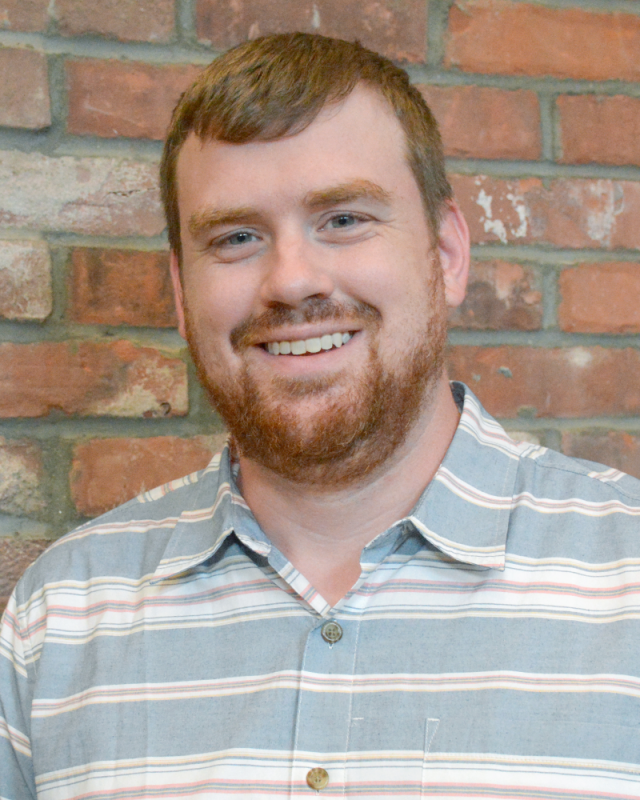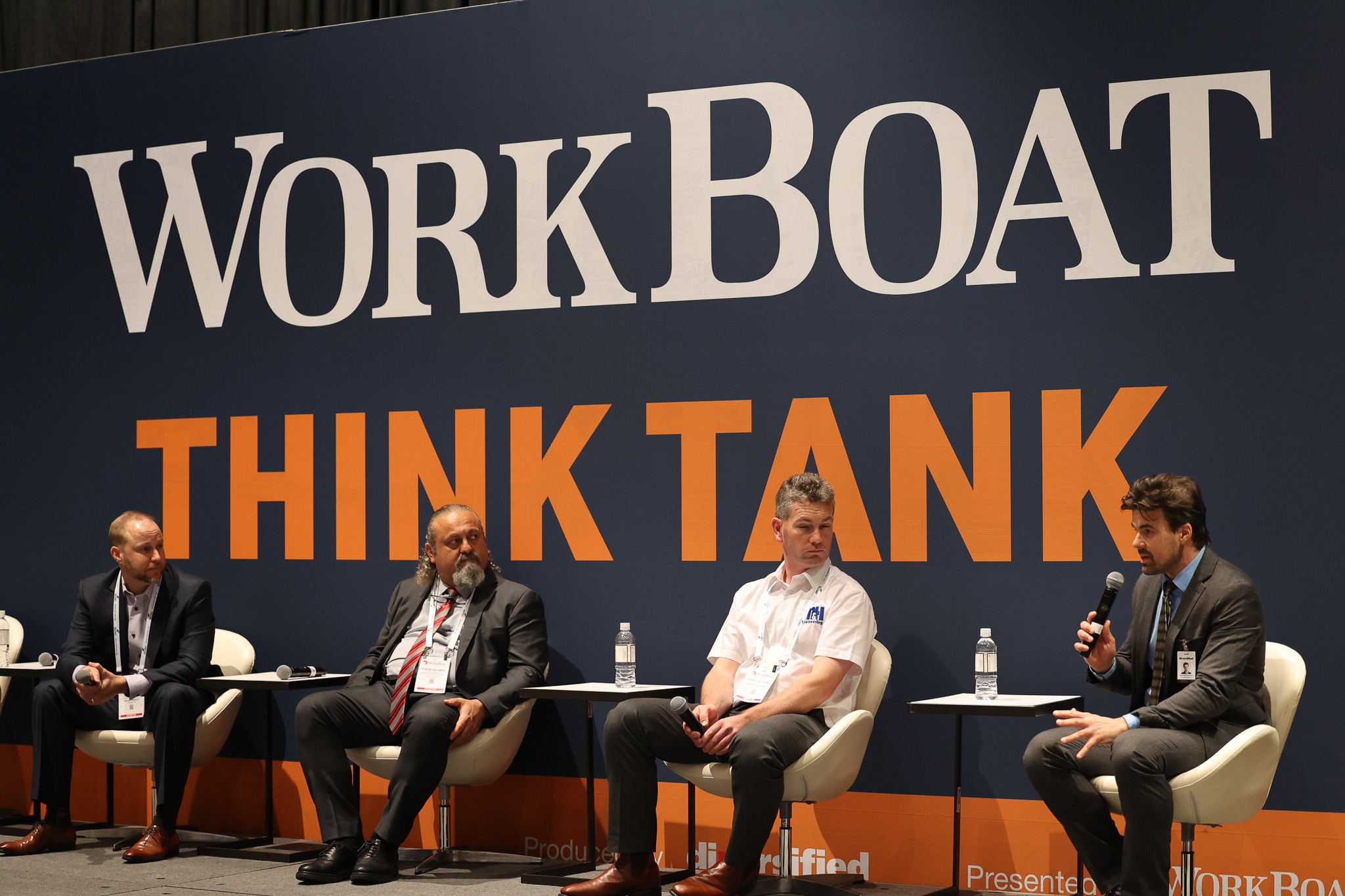The maritime industry, like most that have been around for centuries, has a reputation for being slow to adopt new technology and relatively hesitant to embrace innovation.
Whether or not that's a fair description, change has come in recent years, in part pushed by new regulations requiring significant reductions in carbon emissions and better tracking of those emissions. That has forced mature companies to adapt and has allowed new companies and organizations that traditionally operate outside of the maritime industry to enter the space. Many of these new, innovative products were on display at the 2022 International WorkBoat Show and highlighted in a Think Tank Session on "Cutting Edge Maritime Technologies."
In the session moderated by WorkBoat’s Jeremiah Karpowicz, panel members included Barry McCooey, managing director at M&H Engineering; Paul Sells, CEO of digital solutions at ABS; and Ferhat Acuner, general manager at NAVTEK Naval Technologies.
McCooey discussed the latest from M&H Engineering, the Stage V engine which gets closer than any other in the space to zero emissions. McCooey noted that one of the main motivations for developing this product was to create an engine that could be relied upon for areas all over the world. With clients covering different continents, that means dealing with both a variety of temperatures as well as different regulations. M&H’s Stage V engine meets these goals, currently with three platforms that range in horsepower from 75 to 425, and with development plans to go as high as 910 hp.
Sells talked about ABS’s new Wavesight product, which was launched last week at the WorkBoat Show. Providing a software solution to functions that had previously required mostly manual work, Wavesight – and specifically the My Digital Fleet platform – was created to help “organize, optimize, and realize the data used in the maritime industry.”
Finally, Acuner discussed NAVTEK’s green technology initiatives, specifically their zero emissions electric tugboat, the Zeetug. Pointing towards the need to decarbonize ports, Acuner noted that a significant portion of emissions at ports come from tugboats and other workboats, over 50% according to one survey Acuner cited. The Zeetug not only nearly entirely cuts down CO2 emissions, but also significantly reduces nitrogen emissions as well as noise pollution. In addition to developing the Zeetug, NAVTEK also created their own charging solution which can fully charge the electric engine in less than an hour.
A few key takeaways from the panel was that the simple fact that any technological advancement is going to be a process, not something that will take place overnight. McCooey specifically called out M&H Engineer’s engine as a stepping stone that will be further addressed when diesel fuel becomes less of a necessity. As with any industry, the key for maritime becoming more technologically sound is not just being open to change, but also accepting incremental developments.
There was also broad agreement that any advancement in this space is going to require integration of different solutions and different companies and organizations working together to provide the best and most comprehensive solutions.
Sells noted that people like McCooey and Acuner are doing the crucial work on developing the hardware to cut out emissions on vessels. Wavesight’s functionality to monitor environmental impacts of a vessel is a key to creating a more sustainable industry, but it takes that monitoring system in conjunction with these engine systems to really take the industry to where it needs to be.
McCooey said that the future is going to be all about data and digitalization. It is going to be a major adjustment for many in the industry, particularly those still working with ships that are nearly 50 years old. While that adjustment can’t be brushed aside as insignificant, it’s necessary to move the industry forward.
This is a new era for the industry, and engines like the ones being built out by M&H Engineering can spit out as many as 400 data points per second, and being able to work with this technology will be key to meeting new regulations.




